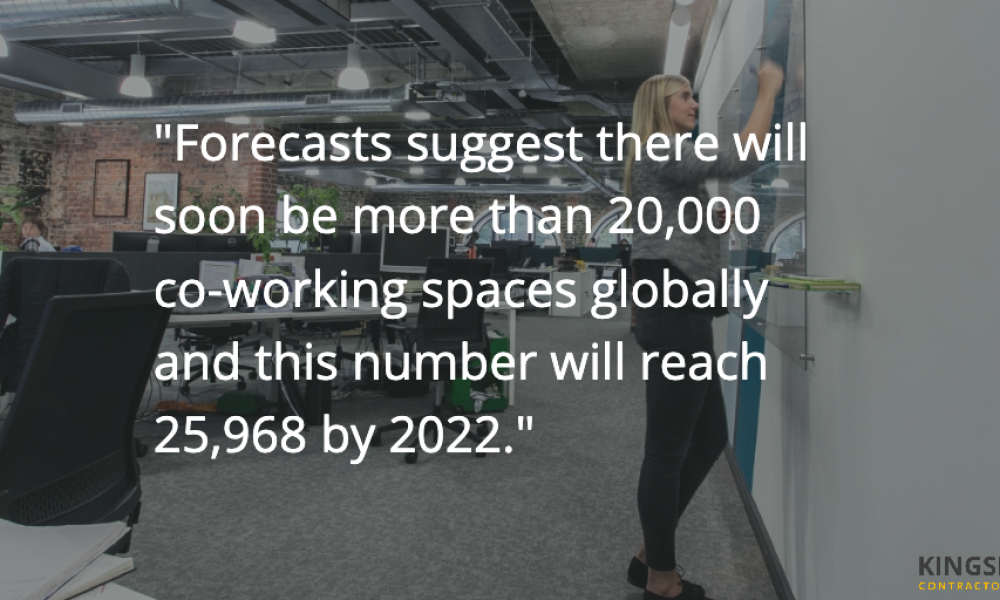Not that long back, not working from the office meant, instead, working from home or, maybe, a library. Then came the coffee shops with their free WiFi and the idea of more flexible workspaces began to gather pace, cumulating in the more formal co-working spaces now available in most cities across the UK. These offer WiFi, food services, printing facilities, meeting rooms, virtual office services and the company of other freelancers, and latest research has shown that these workspaces are growing in popularity with no sign of tailing off.
Contractor Umbrella reports that forecasts suggest there will soon be more than 20,000 co-working spaces globally and this number will reach 25,968 by 2022. That’s 56% growth in 2018 alone and an average of 2,500 new spaces popping up per year since 2015. Last year, a new flexible workspace opened in London every five days.
But what are the pros and cons of using these spaces?
Pros of flexible workspaces:
- If nothing else, using a co-working space gets you out of the house. Many freelancers find this beneficial as the feeling of going to work can boost their productivity. It also stops that stir-crazy feeling that sometimes comes with working from home.
- The facilities are usually similar to what you’d get in an office. For instance, the ability to hire meeting rooms and use the printer. Many also offer free tea and coffee and there are usually kitchen facilities, meaning you’re not lugging around a Thermos of coffee and a soggy sandwich for your lunch.
- The company of other freelancers and contractors is worth its weight in gold in what can otherwise be quite a lonely profession. Having someone to chat to can be a real boost to your mental health and it can also open up opportunities for collaboration and networking.
Cons of flexible workspaces:
- Pay as you go rates tend to work out quite expensive, making it more worthwhile to buy a monthly pass. However, this can be a big commitment if your income changes from month to month. For instance, a pass giving you 10 days per month with a popular co-working space in Liverpool will set you back £120 plus VAT. And these rates would only go up again in London.
- While some spaces are open 24-hours, not many are, meaning your working hours are fixed. Some people may not mind this, but if more flexible working hours are why you became a freelancer, it may not suit you.
- If you’re easily distracted by the comings and goings of others, the hustle and bustle of a co-working space may not be the most productive environment for you.
All that beings said, ultimately whether or not co-working spaces are for you will come down to your own personal workstyle. While most offer monthly packages, they often don’t tie you into a contract do it’s perfectly possible to try it out for a month or two and decide if it suits you.
One thing flexible workspaces don’t include is your contractor insurance, so be sure to get in touch with us if you’re looking to renew.
